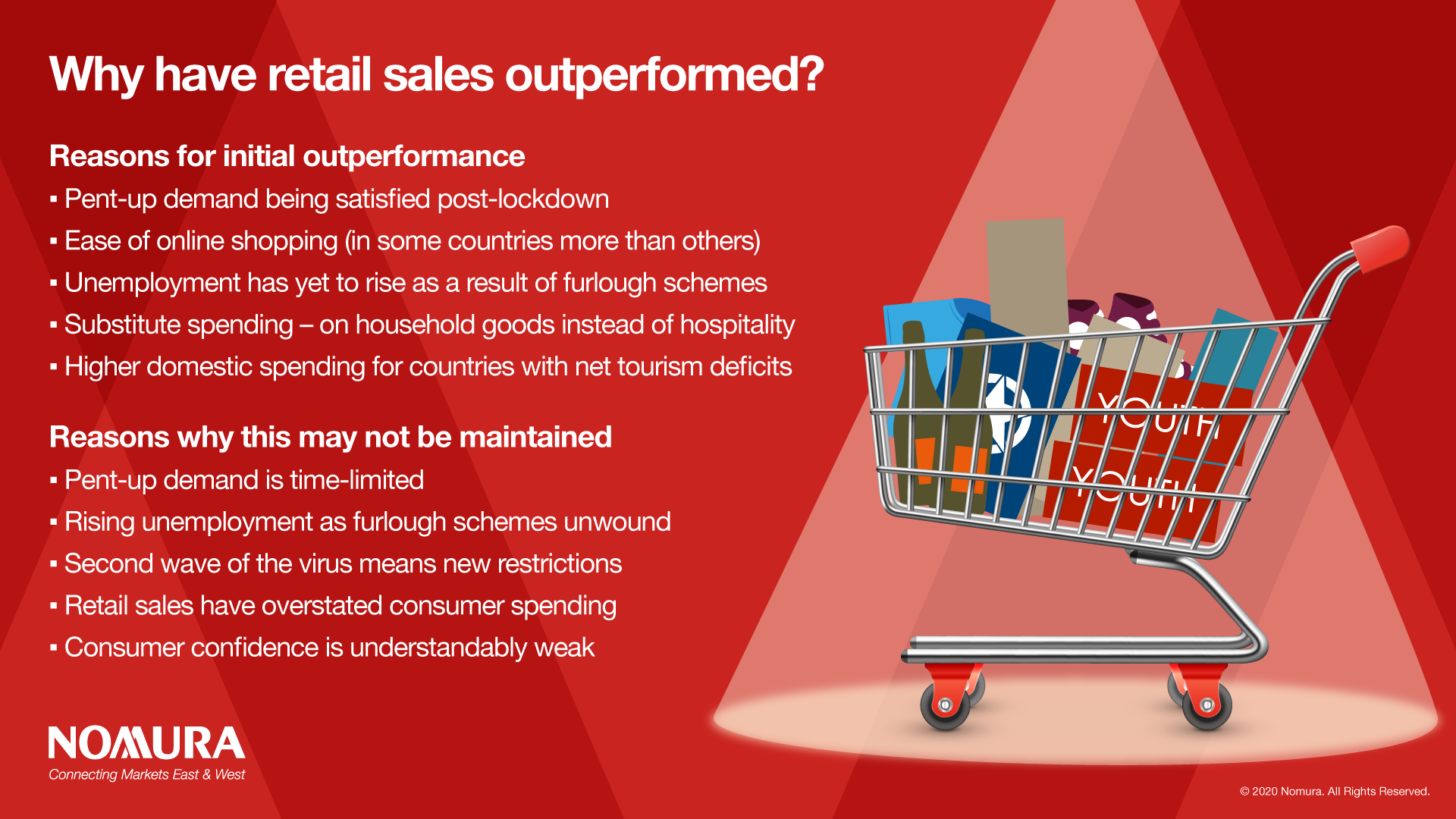In many sectors output and spending have, thus far, returned to levels well below where they originally were pre-pandemic. But retailing – almost universally across developed markets – has rebounded at a far quicker pace. So sharp has been the bounce that monthly sales are generally back up at – or in some cases even above – pre-pandemic levels.
Retail versus the rest
European exports, imports, car sales, and industrial production are all well below their levels at the beginning of the year, with retail sales, and its strong bounce back sitting as an outlier amongst most official indicators of economic activity. As if to echo this trend, European equity markets are also down by similar amounts to industrial production relative to the start of the year. So financial market pricing – in Europe at least – looks closer to the weak levels of most economic indicators than they do to the more positive retail sales news.
Of course, patterns are true to different extents across countries. The US and Japan, for example, have seen equity markets perform better than the economic data more generally might have predicted. But the general trend towards a strong rebound on retail sales and weak performance everywhere else has been broadly the case across developed markets.
Why have retail sales outperformed?
While the ability to purchase online may have facilitated the outperformance of retailing, this is only one factor that explains why sales are back at their pre-pandemic levels relative to other measures of activity that stands well below normal.
By thinking about the factors that have supported sales, we can make a more informed judgment about whether the peak/near-peak levels of sales can be sustained – and whether they are specific to retailing or could, if more generally applicable, lead to a sharper recovery in the economy at large.
Factors such as pent-up demand can explain the rebound to a certain extent. Springboard, a UK firm measuring retail footfall, said in early June that “there’s a huge amount of pent-up demand amongst consumers for bricks-and-mortar-shopping”. There is also the ‘substitution effect’ to consider, as although clothes purchases declined along with the obvious decline in restaurant spend, spending on household electrical and recreation goods increased along with food for at-home consumption, suggesting that people are continuing to spend, just on different items. Another factor which may have led to the bounce back of retail is the movement of spending away from tourism and towards domestic spending.
The outlook for European retailing
So far retail sales, along with housing markets, have generally outperformed other sectors – not just in Europe but across many developed economies. There are various explanations for the V-shaped rebound in sales, but we can put them into two categories - those with positive implications and those with negative implications for the sector looking ahead.
On the positive side, those countries embracing online retailing should continue to benefit, however negatively the ‘pent-up’ demand may begin to finally be satisfied and retail sales may revert lower.
In short, we would not be surprised to see some payback from the bounce in retail sales in the coming months but much now will depend on the progress of the virus, the likelihood of renewed lockdowns, and the risks of rising unemployment.
Read the full report here.






